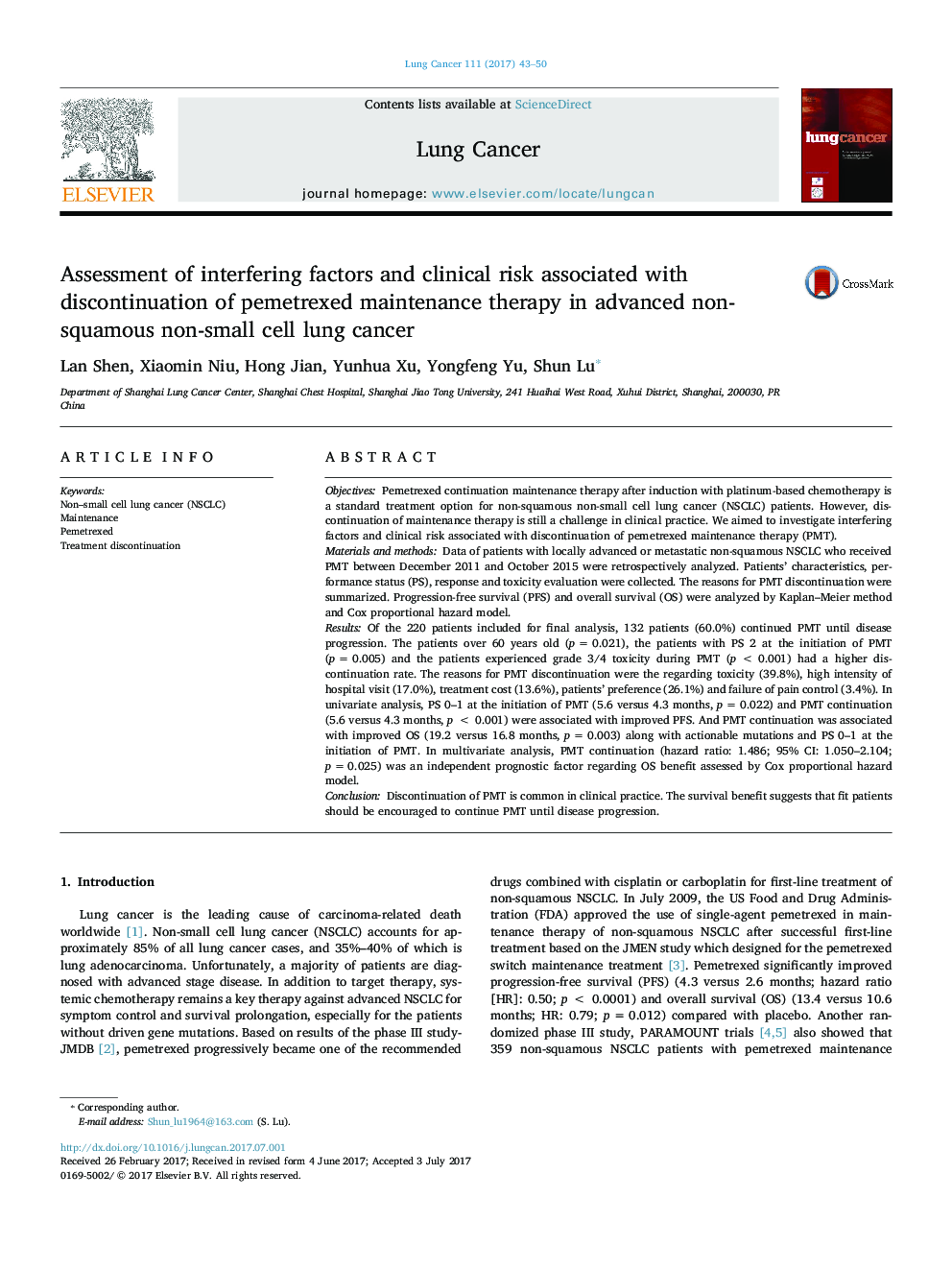| کد مقاله | کد نشریه | سال انتشار | مقاله انگلیسی | نسخه تمام متن |
|---|---|---|---|---|
| 5528327 | 1547956 | 2017 | 8 صفحه PDF | دانلود رایگان |

- It was the first study to assess discontinuation of pemetrexed maintenance therapy.
- The factors that led to discontinuation of maintenance therapy were investigated.
- The clinical risk of pemetrexed maintenance therapy discontinuation was assessed.
- Patients might not get the full therapeutic benefit due to discontinuation.
ObjectivesPemetrexed continuation maintenance therapy after induction with platinum-based chemotherapy is a standard treatment option for non-squamous non-small cell lung cancer (NSCLC) patients. However, discontinuation of maintenance therapy is still a challenge in clinical practice. We aimed to investigate interfering factors and clinical risk associated with discontinuation of pemetrexed maintenance therapy (PMT).Materials and methodsData of patients with locally advanced or metastatic non-squamous NSCLC who received PMT between December 2011 and October 2015 were retrospectively analyzed. Patients' characteristics, performance status (PS), response and toxicity evaluation were collected. The reasons for PMT discontinuation were summarized. Progression-free survival (PFS) and overall survival (OS) were analyzed by Kaplan-Meier method and Cox proportional hazard model.ResultsOf the 220 patients included for final analysis, 132 patients (60.0%) continued PMT until disease progression. The patients over 60 years old (p = 0.021), the patients with PS 2 at the initiation of PMT (p = 0.005) and the patients experienced grade 3/4 toxicity during PMT (p < 0.001) had a higher discontinuation rate. The reasons for PMT discontinuation were the regarding toxicity (39.8%), high intensity of hospital visit (17.0%), treatment cost (13.6%), patients' preference (26.1%) and failure of pain control (3.4%). In univariate analysis, PS 0-1 at the initiation of PMT (5.6 versus 4.3 months, p = 0.022) and PMT continuation (5.6 versus 4.3 months, p < 0.001) were associated with improved PFS. And PMT continuation was associated with improved OS (19.2 versus 16.8 months, p = 0.003) along with actionable mutations and PS 0-1 at the initiation of PMT. In multivariate analysis, PMT continuation (hazard ratio: 1.486; 95% CI: 1.050-2.104; p = 0.025) was an independent prognostic factor regarding OS benefit assessed by Cox proportional hazard model.ConclusionDiscontinuation of PMT is common in clinical practice. The survival benefit suggests that fit patients should be encouraged to continue PMT until disease progression.
Journal: Lung Cancer - Volume 111, September 2017, Pages 43-50